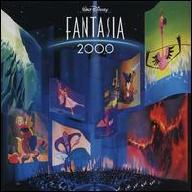Levine was born on June 23, 1943, in Cincinnati, Ohio. As a child, he undertook both piano and violin; he was so accomplished on the violin that at the age of ten, he played Mendelssohn's second violin concerto at a Cincinnati Symphony Orchestra youth concert. He studied piano at various summer music festivals before enrolling at New York's Juilliard School, where he took conducting courses with Jean Morel and continued piano studies with Rosina Lhevinne. George Szell of the Cleveland Orchestra then invited him to become an apprentice. At the conclusion of this term, he became an assistant conductor of the orchestra from 1965 to 1970. In 1973, he became the music director of both the Ravinia Festival (the Chicago Symphony's summer series) and the Cincinnati May Festival. His debut with the New York Metropolitan Opera also came in a summer festival appearance, conducting Puccini's Tosca.
In 1973, following the sudden departure of music director Rafael Kubelik over artistic differences, the Metropolitan Opera appointed Levine to be its principal conductor. Although Kubelik was the first conductor ever to have been given that title at the Metropolitan, he did not remain there long enough to actually exercise the wide responsibilities it implies; Levine was effectively the first music director of the Met. Levine's tenure at the Metropolitan was one of the longest such associations between an opera company and its chief conductor, providing the company with one of its greatest and most stable periods. His season planning was outstanding, and the Metropolitan Opera Orchestra owes some of its reputation as a world-class ensemble to his leadership. In 1996, the Metropolitan Opera conducted a televised celebration of the 25th anniversary of Levine's first performance there in the form of a gala. So many singers agreed to appear that the event lasted over eight hours, conducted entirely by Levine.
In 1975, Levine began to appear regularly at the Salzburg Festival in Austria, where his performances of Mozart were highly esteemed, and he proved himself an excellent Wagnerian in his appearances at the Bayreuth Festival beginning in 1982. He also conducted groups such as the Berlin and Vienna Philharmonic Orchestras, and he served as the chief conductor of the Munich Philharmonic Orchestra from 1999 until 2004. In 2004, Levine became the music director of the Boston Symphony Orchestra, holding this position until 2011. In 2016, following the revelation that he had been diagnosed with Parkinson's disease, Levine resigned as the music director of the Metropolitan Opera, assuming the role of music director emeritus. A series of sexual assault allegations came to light in 2017, leading to the termination of his contract with the Met in 2018. Levine died in Palm Springs, California, on March 9, 2021.
Levine commanded a wide repertoire in opera and the concert hall, ranging from Bach, Haydn, and Mozart to Iannis Xenakis. He was known for an open and engaging personality, which appeared in his rehearsals as well, but this did not prevent him from conducting them with businesslike efficiency. He produced a large number of recordings with the Metropolitan Opera and other opera houses, as well as orchestral recordings with great orchestras, such as the Chicago Symphony on the soundtrack to Fantasia 2000. He was also noted as a pianist who accompanied many of the world's top vocalists and participated in several chamber music recordings. ~ Joseph Stevenson & Keith Finke, Rovi
















